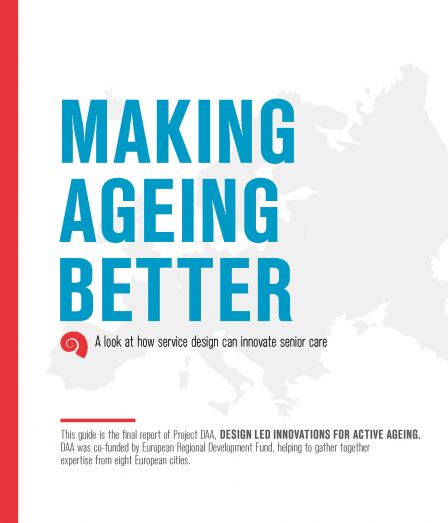Demographic change represents a shared challenge for the cities of Europe. Today, it is accepted that in the future, fewer care personnel will face a growing number of elderly and dependent people in need of care, while public funding for the health care system will further decrease.
The aim of the DAA project was to utilise Service Design as a driver of innovation – to confront demographic change and to create new solutions for the public sector. Thereby, representatives of technology companies, political institutions, municipalities and insurance providers were brought together with service designers and end users in seven European cities: Antwerp, Barcelona, Berlin, Helsinki, Oslo, Sofia, Stockholm and Warsaw.
Each project partner studied a specific subject and devised local scenarios as well as strategic, political and creative solutions. The IDZ addressed the issues of robotics and acceptance of age-adapted assistance technologies. While end user acceptance criteria has been the subject of numerous studies, the requirements of specific groups and stakeholders have received far less attention to date. Accordingly, the IDZ broadened the research and the existing set of criteria. On the basis of the results, recommendations were drawn up to support the successful implementation of innovative assistance technologies in the field of ›Ambient Assisted Living (AAL)‹.

Project brochure and summary of research results from all project partners:
»Making Ageing Better – A look at how service design can innovate senior care«
Recommendations from the IDZ for increasing acceptance of AAL assistive technologies (English):
»DAA Design Brief«
Further information:
daaproject.eu